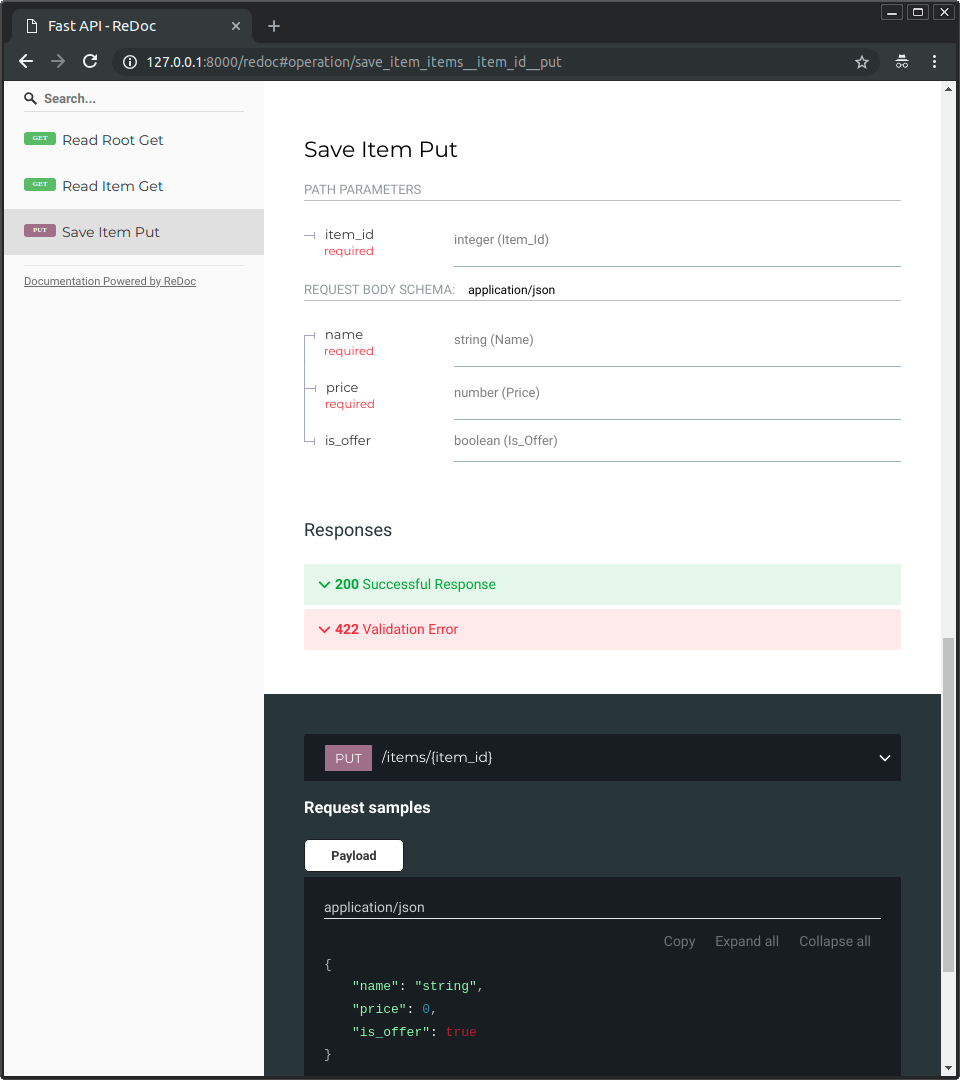- Sort Score
- Num 10 results
- Language All
Results 51 - 60 of 1,217 for parametre (0.05 seconds)
The search processing time has exceeded the limit. The displayed results may be partial.
-
impl/maven-core/src/test/java/org/apache/maven/plugin/PluginParameterExceptionTest.java
mojoDescriptor.setPluginDescriptor(pluginDescriptor); Parameter parameter = new Parameter(); parameter.setType("java.lang.String[]"); parameter.setName("toAddresses"); parameter.setRequired(true); PluginParameterException exception = new PluginParameterException(mojoDescriptor, Collections.singletonList(parameter)); assertEquals(
Created: Sun Dec 28 03:35:09 GMT 2025 - Last Modified: Fri Mar 21 04:56:21 GMT 2025 - 6.8K bytes - Click Count (0) -
src/main/java/org/codelibs/fess/app/web/cache/CacheForm.java
/** * Form class for cache-related operations. * Contains parameters for document caching and error page display. */ public class CacheForm { /** Document ID for cache operations. */ @Required @Size(max = 100) public String docId; /** Highlight query parameters. */ public String[] hq; /** Search query parameter for error page. */ public String q;Created: Sat Dec 20 09:19:18 GMT 2025 - Last Modified: Thu Jul 17 08:28:31 GMT 2025 - 1.6K bytes - Click Count (0) -
docs/de/docs/tutorial/path-params-numeric-validations.md
# Pfad-Parameter und Validierung von Zahlen { #path-parameters-and-numeric-validations } So wie Sie mit `Query` für Query-Parameter zusätzliche Validierungen und Metadaten deklarieren können, können Sie mit `Path` die gleichen Validierungen und Metadaten für Pfad-Parameter deklarieren. ## `Path` importieren { #import-path } Importieren Sie zuerst `Path` von `fastapi`, und importieren Sie `Annotated`:Created: Sun Dec 28 07:19:09 GMT 2025 - Last Modified: Wed Dec 17 20:41:43 GMT 2025 - 7.1K bytes - Click Count (0) -
guava-testlib/src/com/google/common/testing/NullPointerTester.java
* types, and also for interfaces and public classes that have public parameter-less constructors. * When the non-null default value for a particular parameter type cannot be provided by {@code * NullPointerTester}, the caller can provide a custom non-null default value for the parameter type * via {@link #setDefault}. * * @author Kevin Bourrillion * @since 10.0 */ @GwtIncompatibleCreated: Fri Dec 26 12:43:10 GMT 2025 - Last Modified: Mon Jul 14 14:44:08 GMT 2025 - 25.4K bytes - Click Count (0) -
docs/en/docs/index.md
* The alternative documentation will also reflect the new query parameter and body:  ### Recap { #recap } In summary, you declare **once** the types of parameters, body, etc. as function parameters. You do that with standard modern Python types.Created: Sun Dec 28 07:19:09 GMT 2025 - Last Modified: Thu Dec 25 11:01:37 GMT 2025 - 23.5K bytes - Click Count (0) -
docs/de/docs/tutorial/header-params.md
# Header-Parameter { #header-parameters } Sie können Header-Parameter genauso definieren, wie Sie `Query`-, `Path`- und `Cookie`-Parameter definieren. ## `Header` importieren { #import-header } Importieren Sie zuerst `Header`: {* ../../docs_src/header_params/tutorial001_an_py310.py hl[3] *} ## `Header`-Parameter deklarieren { #declare-header-parameters }Created: Sun Dec 28 07:19:09 GMT 2025 - Last Modified: Sat Sep 20 15:10:09 GMT 2025 - 3.5K bytes - Click Count (0) -
fess-crawler/src/main/java/org/codelibs/fess/crawler/extractor/impl/FilenameExtractor.java
* If this parameter is not present, an empty string is returned as the content.</p> */ public class FilenameExtractor extends AbstractExtractor { /** * Constructs a new FilenameExtractor. */ public FilenameExtractor() { // Default constructor } /** * Extracts the filename from the parameters. *Created: Sat Dec 20 11:21:39 GMT 2025 - Last Modified: Wed Nov 19 08:55:01 GMT 2025 - 2.7K bytes - Click Count (0) -
fess-crawler/src/main/java/org/codelibs/fess/crawler/client/AbstractCrawlerClient.java
} } /** * Retrieves an initialization parameter, converting it to the specified class type. * @param <T> The type of the parameter. * @param key The key of the parameter. * @param defaultValue The default value if the parameter is not found. * @param clazz The class type to convert the parameter to. * @return The parameter value, or the default value if not found. */Created: Sat Dec 20 11:21:39 GMT 2025 - Last Modified: Sat Sep 06 04:15:37 GMT 2025 - 9.7K bytes - Click Count (10) -
impl/maven-core/lifecycle-executor.txt
Created: Sun Dec 28 03:35:09 GMT 2025 - Last Modified: Fri Oct 25 12:31:46 GMT 2024 - 9.7K bytes - Click Count (0) -
fastapi/param_functions.py
Created: Sun Dec 28 07:19:09 GMT 2025 - Last Modified: Sat Dec 27 12:54:56 GMT 2025 - 63K bytes - Click Count (0)